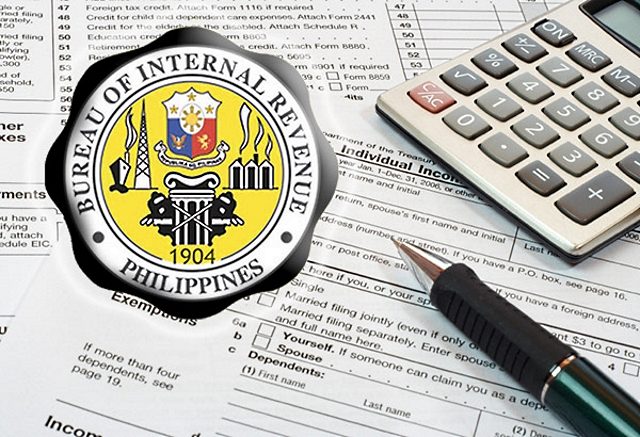MANILA – The Senate version of the Tax Reform for Acceleration and Inclusion (TRAIN) bill does not only cut income taxes but also the red tape in paying them, Senate President Pro Tempore Ralph Recto said Monday.
The Senate action, Recto said, is contained in several amendments to the National Internal Revenue Code which, once implemented, would relieve taxpayers of the “cumbersome and complicated” procedures in paying taxes.
“Simplified taxpaying is an important component of tax reform. Cutting the rates must go hand in hand with cutting the number of requirements,” said Recto, who authored the amendments.
Under the Senate version of the TRAIN, the 12-page Income Tax Return (ITR) for individuals and the 8-page ITR for corporations will be slashed to two pages.
Information to be supplied in the two-page ITR shall be limited to:
• Personal profile and information;
• Gross sales, receipts or income from compensation for services rendered, conduct of trade or business or the exercise of a profession, except income subject to final tax as provided under this code;
• Allowable deductions under this code; and
• Taxable income as defined in Section 31 of the NIRC
The Senate, also upon the motion of Recto, voted to reduce the frequency of tax filings, with the Percentage Tax and VAT to be filed quarterly from the current monthly.
“A small business has to undertake 36 tax-related transactions annually. Because of complicated tax rules, a small trader has to put in his payroll an employee whose sole job is to liaise with the BIR,” he said.
Also approved by the Senate was the Recto amendment reducing withholding tax rates to not more than 10 percent from the current maximum of 32 percent.
Correcting BIR overreach
“We are correcting this BIR overreach. Sobra minsan ang withholding tax. They’re dipping too deep inside the taxpayer’s pocket,” Recto said.
The Senate has also rejected the Department of Finance proposal to electronically link cash machines of small businesses like sari-sari stores and carinderias to the main servers of the BIR.
“Sa panukala kasi nila, yung point of sale naka-connect sa BIR. Under our proposal, the issuance of electronic receipt and electronic sales reporting will be limited to export enterprises and taxpayers under the BIR’s Large Taxpayers Service,” Recto explained.
“Kung ang tindahan mo ay sa isang liblib na baryo, paano ka naman maglalagay ng computer na naka-hook-up sa BIR?” Recto said.
Passing these ease-in-tax payments provisions, Recto said, will not only eliminate red tape, “but reduce graft opportunities that come when discretionary wiggle room is granted to revenue officers.”
Recto believes “many taxpayers are willing to pay their dues if only revenue processes are short and simple.”
Recto said “steep penalties, high fines, short compliance period, and arbitrary levying of surcharges” should be reviewed and tempered as these prevent individuals from coming forward to comply.
“Tax payment is always by confession. ‘Yung iba, ayaw na kasi natatakot sa laki ng multa kaagad. Gustong magbayad ng tama, pero discouraged sa parusang naka-abang na agad,” he said.
A recent World Bank report said that a medium-sized company in the country spends 182 hours in preparing tax payments, which eat up 43 percent of profit, “high hurdles which landed the Philippines 105th in 190 economies in the global paying taxes index,” Recto said.
Another World Bank report released in October 2015 pegged the opportunity losses to red tape costs at P140 billion annually.









